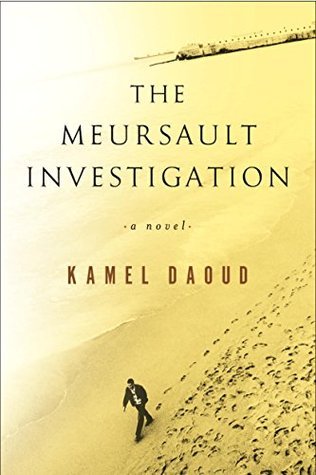
The Meursault Investigation
Book Description
A mother’s murder sets off a haunting quest for truth in the shadow of colonial history. Haroun, the brother of the victim, grapples with the legacy of the infamous Meursault, whose tale overshadowed his own family’s grief. With biting wit and profound insight, the narrative unfolds against the backdrop of Algeria’s tumultuous past, blurring the lines between obsession and revelation. As Haroun confronts societal indifference and personal demons, the echoes of his brother's death challenge the fabric of identity and justice. Will he find closure, or will the shadows of history consume him?
Quick Book Summary
The Meursault Investigation by Kamel Daoud revisits the famous narrative of Albert Camus’s "The Stranger" from the perspective of the murdered Arab’s family. Haroun, the victim’s brother, navigates the trauma and erasure inflicted by colonial narratives that deny his brother a name or a story. Set in post-colonial Algeria, the novel is both a meditation on the enduring scars of French occupation and a fierce reclamation of identity. Through Haroun’s voice, Daoud critiques the indifference of history and literature toward victims of colonial violence. Haroun’s journey becomes one of self-discovery and confrontation with the lingering ghosts of the past. The novel deftly interrogates the interconnectedness of personal grief, national memory, and the quest for truth and justice in a world shaped by violence and silence.
Summary of Key Ideas
Table of Contents
Colonial Erasure and Reclaimed Identity
Haroun, the narrator, tells his story decades after his brother Musa was killed by Meursault, the protagonist in Camus’s "The Stranger." While Meursault’s story gained fame, Musa’s identity was lost—he was simply "the Arab." Haroun’s narrative is both personal and political: he confronts the silence imposed upon his family and seeks to restore his brother’s humanity by giving him a name and a story. The void left by Musa’s death shapes Haroun’s identity and fuels his lifelong sense of alienation.
The Weight of Unanswered Grief
The novel delves into the consequences of colonialism, particularly the erasure of Algerian voices. Haroun’s mother becomes obsessed with the loss, compelling Haroun to internalize her grief and anger. Their lives are defined by waiting for justice or recognition that never arrives. Daoud’s portrayal highlights how whole communities suffered not just physical violence, but the more insidious violence of being rendered invisible by official accounts and literature.
Challenging Historical Narratives
Haroun’s account is a counter-narrative that challenges how history is written and whose stories are valued. He is both haunted by Meursault's literary fame and resentful of the world’s indifference to Musa’s death. The book interrogates the act of storytelling, the power to define meaning, and the moral complexities embedded in public memory. Haroun’s confession is as much a plea to the reader as it is an accusation against a system that privileges certain lives over others and trivializes authentic suffering.
The Search for Justice and Meaning
Justice remains elusive throughout the novel. Haroun’s attempts to find closure culminate in his own contemplations of violence: he murders a Frenchman shortly after Algeria’s independence, mirroring Meursault’s act. Yet, unlike Meursault, Haroun is not subject to the same existential scrutiny or legal repercussions. This reveals the shifting standards of justice and the limits of moral clarity in post-colonial upheaval, exposing the ways historical wounds are perpetuated rather than healed.
Alienation and Personal Obsession
Ultimately, The Meursault Investigation is a meditation on alienation and obsession. Haroun’s identity is inseparable from his brother’s absence and the silence that followed. His quest is never just about Musa; it is about asserting dignity in a world that denied him voice. Daoud’s novel intensifies the existential questions posited by Camus, reframing them through the lens of those who are usually marginalized. In this act of remembering, Haroun—and by extension, Algeria—begins to reclaim history on their own terms.
Download This Summary
Get a free PDF of this summary instantly — no email required.





